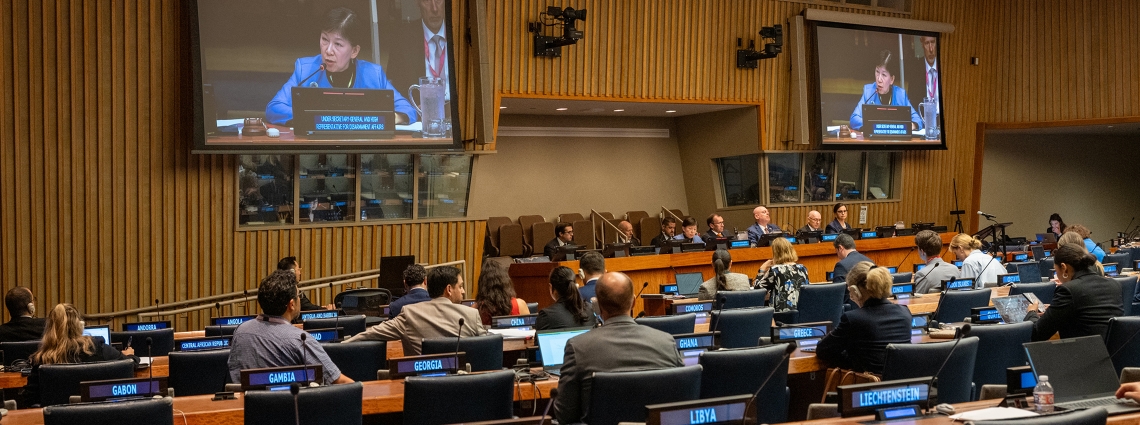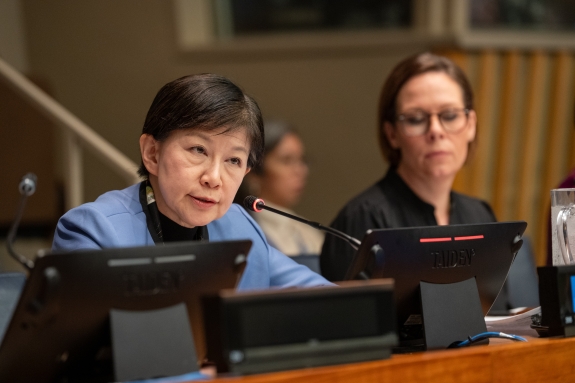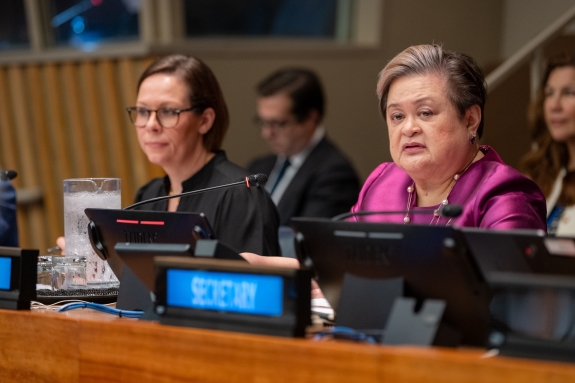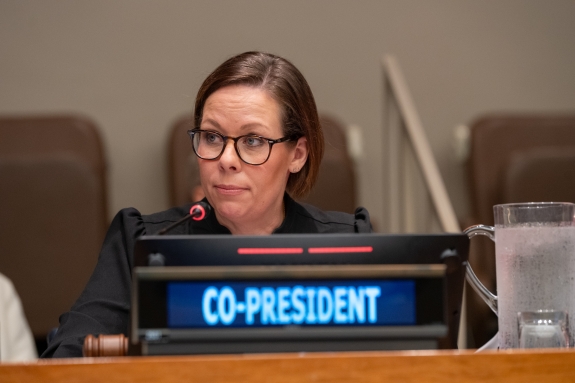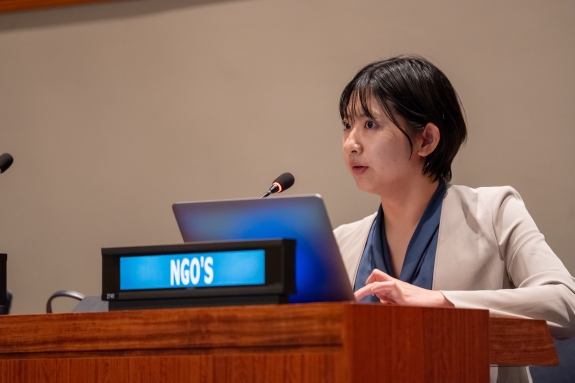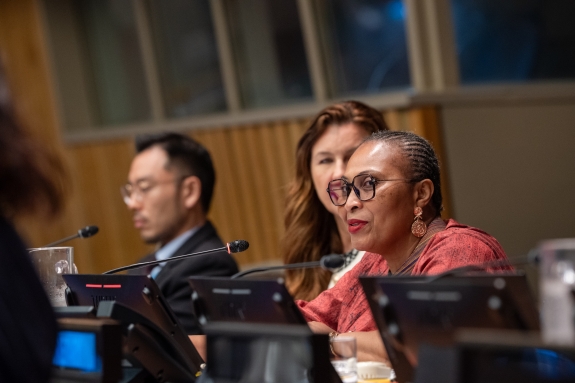14th Article XIV Conference calls for renewed action for CTBT entry into force
Ministers and high-level officials from around the world convened at United Nations Headquarters on 26 September 2025, on the margins of the UN General Assembly, renewing their commitment to make the Comprehensive Nuclear-Test-Ban Treaty (CTBT) legally binding.
Nearly three decades after the Treaty opened for signature, its entry into force remains an urgent priority.
Executive Secretary Robert Floyd delivering remarks at 14th Article XIV Conference
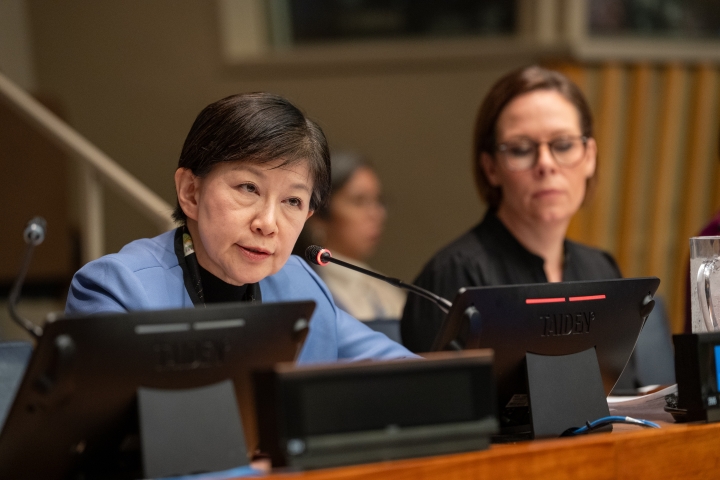
UN High Representative for Disarmament Affairs, Izumi Nakamitsu speaking
The CTBT is an unambiguous success. An unambiguous force for global good. Today we are here because despite that success, entry into force still eludes us... Today, we make the case for finishing the job.
The meeting was held under the CTBT’s unique mechanism to facilitate its entry into force. Known as the Article XIV Conference (AFC), this biennial gathering brings together representatives from States Signatories to take stock, encourage new signatures and ratifications, and demonstrate political will at the highest level.
Speaking on behalf of the Secretary-General, UN High Representative for Disarmament Affairs Izumi Nakamitsu underlined the urgency of advancing the CTBT and the UN’s commitment to seeing it through.
The very fact that we are gathered for another Article XIV Conference is a reminder of the work that remains to bring the Treaty into force. The true measure of success will be the day when these conferences are no longer necessary. The United Nations remains firmly committed and ready to support Member States to ensure that the promise of the CTBT is realised.
New Leadership Renews Push for Treaty’s Entry into Force
The Article XIV process relies on co-presidents to sustain momentum between conferences. Over the past two years, Panama and Norway have fulfilled this role, guiding political and technical outreach, leading multilateral interventions, and building bridges.
In New York, they formally passed the baton to the Philippines and Sweden, who will now lead until the next conference.
Assuming the co-presidency, Secretary of Foreign Affairs of the Philippines, Maria Theresa Parreño Lazaro stressed the importance of entry into force.
We reiterate our call for the remaining Annex 2 States to sign and ratify the Treaty without delay and preconditions. In the face of simmering geopolitical dynamics and intensifying nuclear rhetoric, our efforts should even be more unrelenting and united towards this goal.
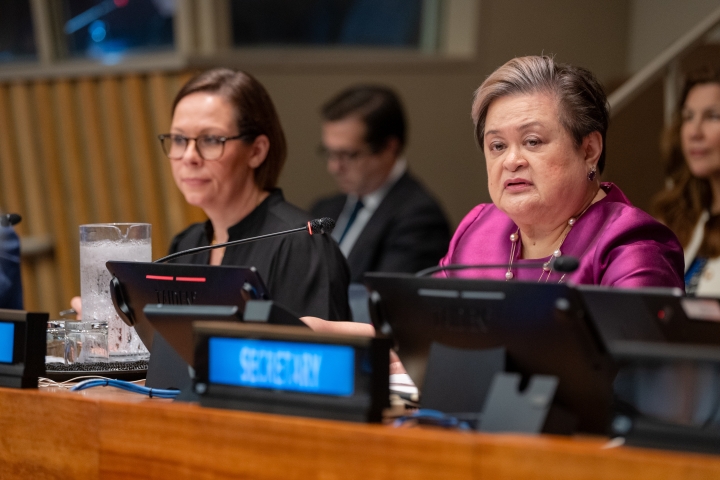
Secretary of Foreign Affairs of the Philippines, Maria Theresa Parreño Lazaro, co-president of Article XIV Conference, delivering statement
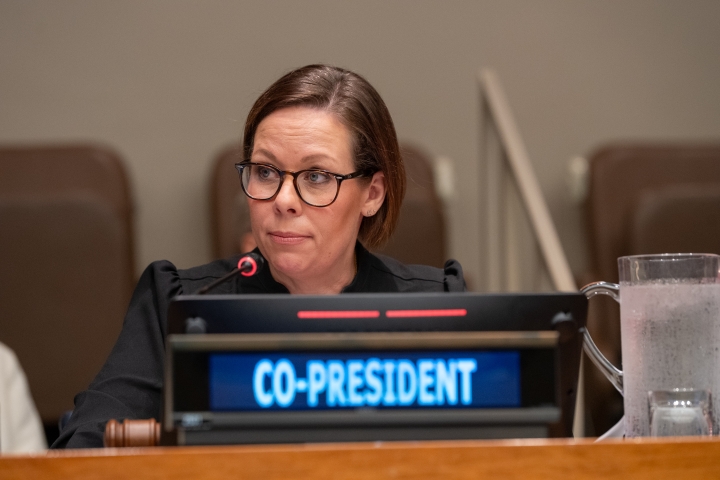
Minister for Foreign Affairs of Sweden, Maria Malmer Stenergard, co-president of Article XIV Conference, delivering address at AFC
Minister of Foreign Affairs of Sweden, Maria Malmer Stenergard echoed this resolve.
We want to see the Treaty legally binding – a complete ban on nuclear tests. A particular responsibility lies with the nine States whose ratification is necessary for the CTBT to enter into force. For these nine, this is a real opportunity for international leadership.
Since the last Article XIV Conference in 2023, Papua New Guinea has ratified the Treaty, further strengthening its near-universal support.
Final Declaration: Urgency and Obstacles
The conference concluded with the adoption by acclamation of a Final Declaration, voicing deep concern that, as the 30th anniversary approaches, the prospect of entry into force remains uncertain. While welcoming near-universal adherence to the Treaty, participants regretted the long stalemate among Annex 2 States and the withdrawal of one ratification. They stressed that existing test moratoria, though valuable, cannot replace the certainty of a permanent and legally binding ban.
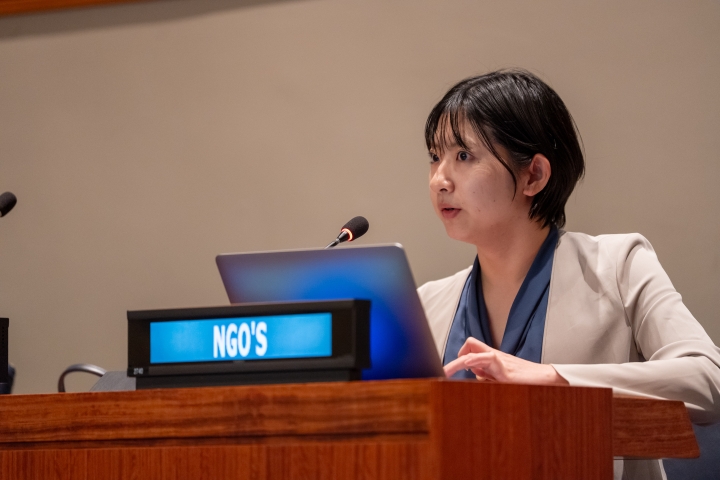
NGO representative speaking during afternoon session
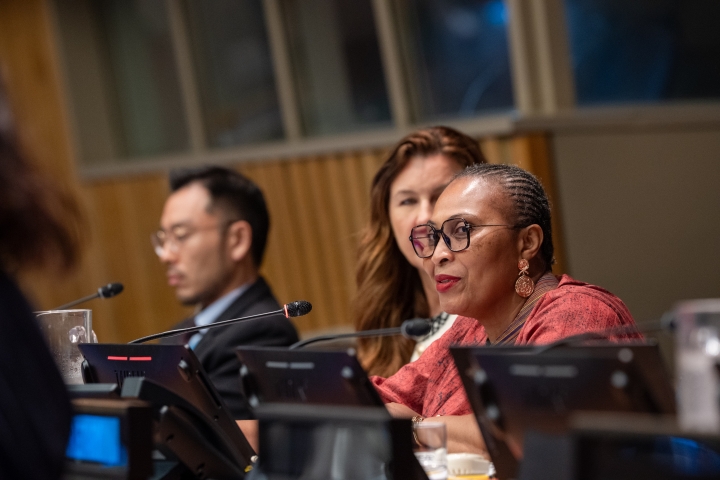
Delegates listening to statements during afternoon session of AFC
Adherence to the CTBT is already nearly universal: 187 States have signed and 178 have ratified. Yet the Treaty cannot take effect until all 44 of the Annex 2 States, those with nuclear research or power reactors at the time of negotiation, have ratified. Nine remain outstanding: China, Egypt, Iran, Israel, the Russian Federation, and the United States, which have signed, and India, North Korea, and Pakistan, which have not. Representatives from several of these countries, including China, Egypt, and Israel, took the floor during the conference to reaffirm their support for the Treaty's object and purpose.
With the CTBT just one year shy of its 30th anniversary, the message from New York was clear. The Treaty has changed global practice, but its legal entry into force remains the unfinished step.
